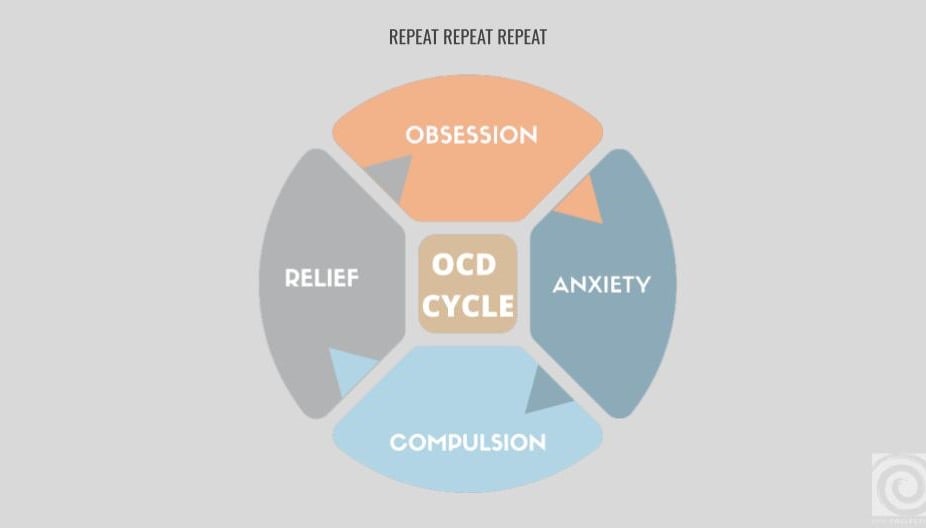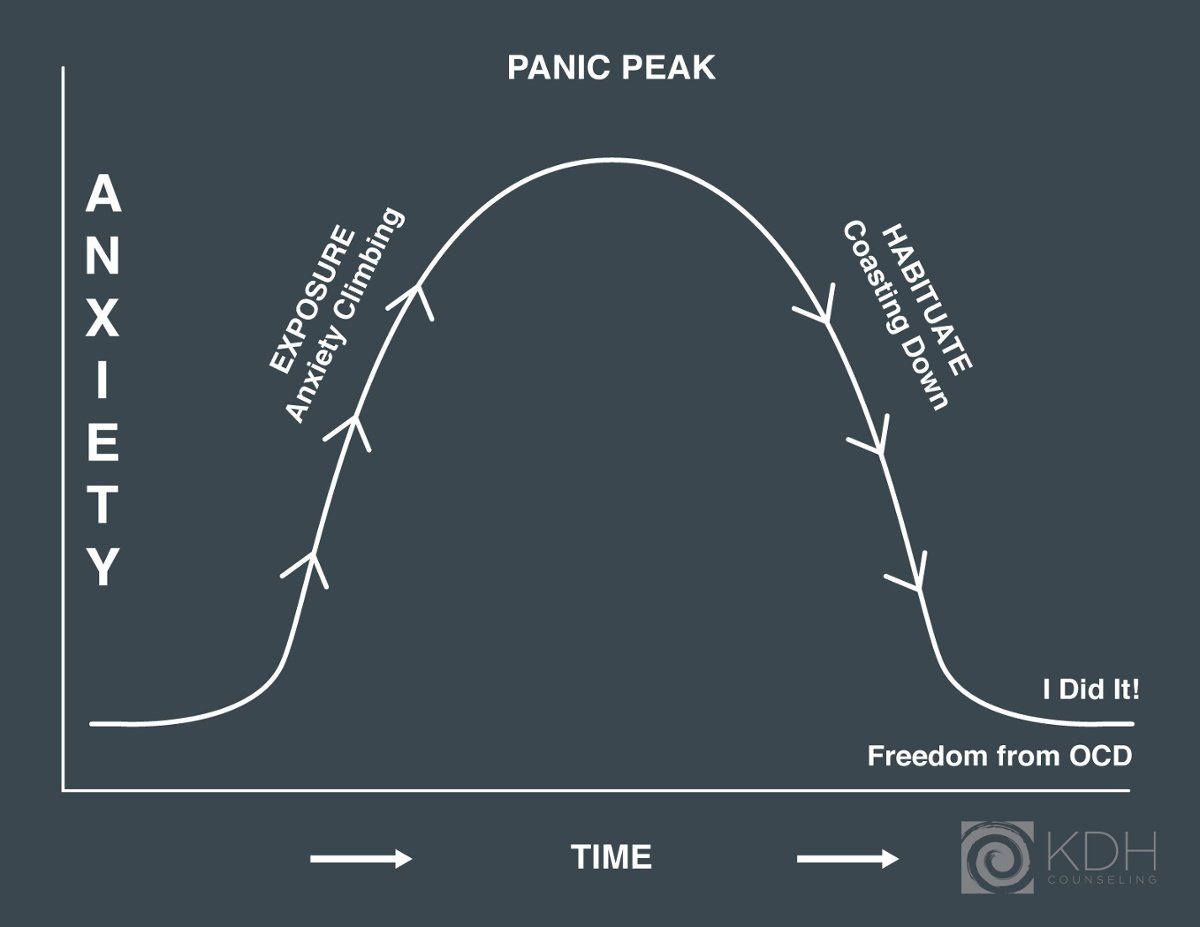The Skinny on Treating OCD: Habituation & ILM
I began working with individuals who have OCD about 10 to 12 years ago. My journey into understanding OCD began in my graduate program, where I was...
3 min read
KD HOLMES, LPC, EMDR CERTIFIED, BTTI TRAINED
:
Jul 25, 2021 10:11:26 AM

Many of the individuals I work with (myself included) are plagued by an obsessive brain. Obsessive brains are repetitive and stuck, living in a rabbit hole of thinking that leads to nowhere but feels real to the sufferer. These individuals are often diagnosed with Obsessive Compulsive Disorder, which is composed of obsessions followed by compulsions.
Obsessions are distressing repetitive thoughts that are terrifying, where the individual gets lost by thinking the unwanted thought over and over again.
The repetitive thoughts are triggered by anxiety and create more anxiety, and are followed by compulsive internal thoughts, actions, or external actions that are repeated = compulsions. In order to be a compulsion, it has to be done a lot, not just once or twice.
Triggers for the obsessions are sometimes external and sometimes internal.
For some, feeding into the compulsion relieves the anxiety momentarily but then produces more anxiety, and so the cycle continues, and the obsession repeats forever, so it would seem. S/he/they becomes lost in these obsessions and compulsions.
For others, their compulsions relieve anxiety and keep it at bay, like a preference on how to live. These individuals have strict rituals that they feel they must adhere to, so their anxiety stays at bay.
Both types, for lack of a better word, are controlled by their obsessions and compulsions.
The funny thing is that we exaggerate this term so easily, much like we do with depression. “I’m obsessing,” or “I am so OCD about my workouts or my home.” This is not truly Obsessive Compulsive Disorder.
True OCD is all-consuming and feels so real to the sufferer. Others will tell the individual to just stop thinking that way or doing your compulsions. If only it were that easy.
I do not have diagnosable OCD but my Generalized Anxiety Disorder presented like OCD when I was younger. I would obsess or ruminate over physical ailments, then compulsively research.
My trigger was disturbing news from my doctor. My doctor would mention things that needed to be checked out (possibly cancer) and then I would experience repetitive, uncontrollable thoughts about cancer (obsessions), research cancer symptoms online and sensation check in my body (compulsions).
I also obsessed/ ruminated over making mistakes at work and in social interactions. I would follow it by memory checking of events, scenario bending, and checking with friends to gain reassurance.
There are some individuals whose anxiety is compulsive in nature, but they do not have OCD because they don't meet all the DSM criteria, but it is still treatable the same way with ERP. I am one of those humans. Discovering ERP in my work life created lots of empathy and understanding for myself and for helping my clients.
Fortunately, there is hope! OCD is a completely treatable condition through Exposure Response Prevention and Inhibitory Learning. It requires facing the worst of one’s fears.
No problem, right? I am joking of course!
I am highly aware of the fact that this will be one of the hardest things you will do. Just remember you will be forever changed by the process, and you do not have to do it alone. I often say you once you learn something through practice (experience), you cannot unlearn it. Learning these new messages and experiences with your anxiety is life changing. This is inhibitory learning.
I empathize so much with my clients because beginning the work is hard, that is why I chose the picture below.
It means finding a trusted and skilled therapist to lead you down this path. One that checks in with hang-ups and finds where you feel comfortable to start the work.


I began working with individuals who have OCD about 10 to 12 years ago. My journey into understanding OCD began in my graduate program, where I was...

Many people unknowingly live with what I call "Trauma Brain." It’s an invisible force driving their actions, emotions, and even physical symptoms,...

As I am trying to unpack a person's struggle I often think...What is it like to be you? What is it like to have your upbringing, to have your brain,...